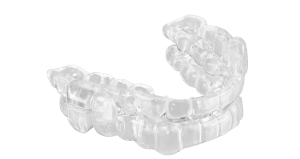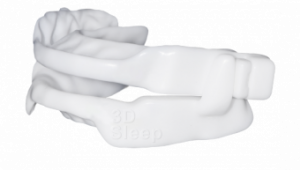Patient Information
Frequently Asked Questions
Get the best sleep – call to schedule a consultation!
Obstructive sleep apnoea is a condition where the upper airway becomes fully or partially obstructed repeatedly during sleep which cuts off your breathing and starves your body of oxygen. Some people wake up gasping for air, where as others have no idea it is happening but don’t feel refreshed after their full sleep.
Snoring is a potential risk sign for sleep apnoea as it is typically the vibration of soft tissues in the back of the throat when becoming obstructed. Relieving your snoring will not only solve the noise issue, but it will have great benefits to your overall health allowing your body to breathe normally while you sleep.
Bruxism is the term for the act of repetitively contracting your jaw muscles typically leading to grinding or clenching your teeth but sometimes can just involve the muscles being overactive. This can happen both during wakefulness and during sleep however sleep bruxism typically is shown in the research to be more frequent and intense. Although many studies have been done to discover the true cause of bruxism, it is still unclear of the exact reason it occurs and it is generally accepted that each person may have many factors that impact on it and the symptoms they may experience.
The effects of bruxism however are often very clear with wear and damage to the teeth and the onset of temporomandibular joint (TMJ) issues such as aching pain and stiffness. If bruxism is allowed to continue for too long, damage to your teeth and jaw joints can often become drastic and very difficult to fix. Prevention is often the best approach with custom made bruxism occlusal splints the first line choice. If obstructive sleep apnoea (OSA) is possible then it should be screened for as it may be a potential risk factor for bruxism and change the treatment plan.
Oral appliances for obstructive sleep apnoea/snoring are worn during sleep and act to stabilize (splint) the lower jaw (mandible) in an advanced position, preventing the collapse of the soft tissues and tongue from closing your airway. This also helps avoid the common snoring problem as these tissues are less likely to vibrate while sleeping. Typically these devices are started in a more neutral position to firstly avoid the jaw dropping back and then can be adjusted forwards only if needed depending on your specific circumstance.
A mandibular advancement splint (MAS) is widely accepted to be a suitable treatment option for obstructive sleep apnoea (OSA) and snoring as a frontline pathway in cases of mild to moderate OSA or as an alternative pathway for severe OSA when the person is unable to tolerate or does not want to consider CPAP therapy.
We have treated many patients that have severe OSA with MAS devices as often they can tolerate the treatment much easier and therefore get a greater reduction in their OSA burden compared with inadequate CPAP usage.
There are many types of sleep apnoea/snoring oral appliances out there on the market but it is important to have an assessment to find the right one for you. They typically are similar to a small custom made mouthguard which cover both top and bottom teeth and act in different ways to help keep your jaw forward comfortably whilst you sleep.
© SomnoMed Avant |
© ProSomnus Sleep Technologies | © 3D Sleep Nylon Dorsal MAS |
Unlike the strongly discouraged and unproven ‘off-the-shelf’ appliances, these appliances are precision custom-fit for each individual using state-of-the-art technology 3D intra-oral scanning. It is extremely important that the appliances are adjustable as this allows us to find the correct jaw advancement for each individual case. Over time, certain lifestyle circumstances may change or simply the OSA/snoring condition may worsen with ageing and so having the ability to adjust the appliance is important. On the contrary, if the OSA/snoring condition improves due to situation such as weight loss or alcohol abstinence, the device will have the ability to adjust back too.
If taken great care of, these appliances generally can last between 3-5 years or more and for peace of mind, most appliance types come with a 3 year manufacturer warranty against any breakages or defects. Any subsequent appliances which are made after the first case with us will always attract discounted prices on the current costs.
For Mandibular Advancement Splint (MAS) related cases:
There are private health insurance rebates available for dental extras. Amount of rebates will depend on level and type of cover. Please use the following item codes and costs to quote this with your health insurer for more guidance as QLD Dental Sleep Therapy has no control over rebate amounts and requirements. Most health insurers allow direct claiming with HICAPS at your appointment. If you are in Bupa, AIA or HCF, these insurers require the second appointment paid up-front in full and for you to submit your receipt and supporting documentation to claim the rebate amount. QLD Dental Sleep Therapy bears no responsibility for whether rebates are claimable and strongly recommend you obtain the necessary documentation prior to starting if you wish to claim the rebate amount.
Kindly note that Medicare rebates do not apply to the services we offer. Payment is required on the day of your appointment. The item numbers and fees outlined below are before private health insurance rebates, which may be available depending on your level of dental extras cover.
Appointment 1: (Consultation, intra-oral scans/impressions, assessment and analysis) – Total Cost $400 + $500 deposit = $900)
015 – $200
963 – $100
964 – $100
If proceeding with an appliance, a $500 deposit is required to commence fabrication. This deposit will be credited towards your next appointment.
Appointment 2: (Fitting of Mandibular advancement splint oral appliance)
984 – $2,100 – $2,300 (depending on appliance design and features) minus $500 deposit
For Bruxism, TMJ Disorders and Orofacial Pain initial consultations:
Appointment 1: (Consultation, assessment and analysis) – Total Cost $400
015 – $300
963 – $100
Appointment 2: (Fitting of Mandibular advancement splint/ Occlusal appliance)
965 – $1,100 – $1,500 (depending on appliance design and features) minus $500 deposit
The treatment plan may require additional costs which will be explained at the initial consultation for your consideration prior to proceeding.
Provider Number: 432697DK (for quotation purposes)
A growing body of evidence is supporting oral appliances as an effective and suitable alternative treatment option for people who are unable to tolerate or are willing to trial CPAP therapy. It is now a widely accepted treatment option for OSA and snoring by many international peak medical associations and boards including Australia.
Although still regarded as the gold standard treatment for severe obstructive sleep apnoea, CPAP use can be difficult for some people to use. Many people in this situation typically achieve a greater mean disease alleviation or ‘effectiveness’ if a mandibular advancement splint (MAS) if they can use it more. Some patients even get a similar reduction in OSA with MAS devices but there are certain signs or things we can assess at the initial appointment to determine an individual success rate.
Most people who use oral appliances experience very little or no side effects with therapy. Minor side effects reported have included excessive saliva, jaw tenderness, bite changes or dry mouth. Most side effects are temporary and resolve over a short period of time or after adjustment of the device. These side effects used to be more pronounced in older style device designs or materials but are significantly minimized now with the introduction of 3D intra-oral scanning making digital construction a far superior fit to the teeth.
It is also worth noting that the rare cases where people have reported these minor side effects also say the massive positive change to their sleep and health far outweighs the minor issues.
Proud to empower and educate to explore optimal health & wellbeing
Here at QLD Dental Sleep Therapy we are strongly dedicated to explore, translate and provide MAS therapy for sleep, TMJ and bruxism disorders.







